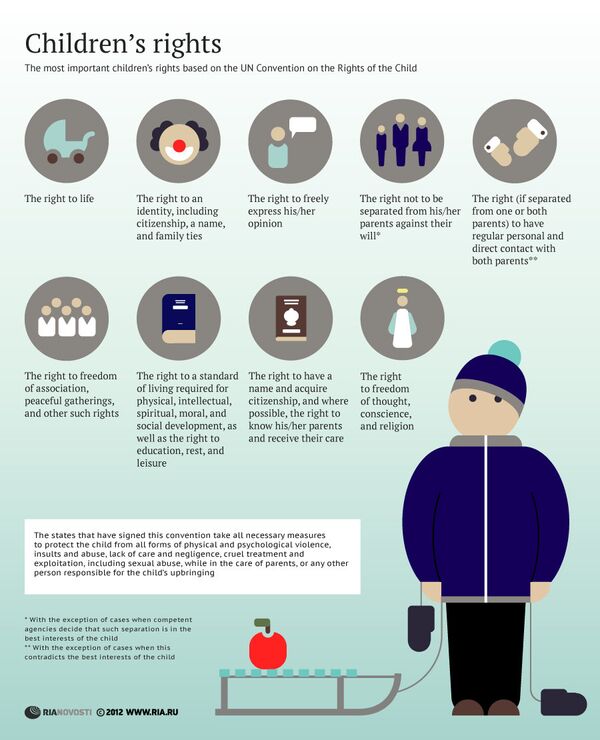WASHINGTON, June 28 (RIA Novosti) – A US lawmaker is seeking international assistance to resolve the adoption dispute between the United States and Russia, including Moscow’s decision to prohibit the adoption of Russian children by American parents that were already in process when the Kremlin imposed the ban earlier this year.
“This is about putting children first,” US Sen. Roger Wicker, a Republican from Mississippi, said in a statement this week. “Regardless of the countries involved, no one should change the rules in the middle of the game. Children who have already bonded with adoptive parents deserve to be protected under the laws in place when their adoption process began.”
Wicker said he will offer a resolution to protect children and families caught in the middle of legal adoption changes at the 57-country Organization for Security and Cooperation in Europe (OSCE) Parliamentary Assembly meeting set to begin Saturday in Istanbul.
The resolution urges OSCE countries to resolve differences over adoption and avoid any “indiscriminate disruption of inter-country adoptions already in progress.” Both the United States and Russia are members of the organization, which includes countries from Europe, Central Asia and North America.
Speaking at a press conference at the Russian Embassy in Washington earlier this week, Moscow’s children’s rights ombudsman Pavel Astakhov said that no more Russian children would be allowed to join potential adoptive families in the United States.
“The issue is closed because there is no process,” Astakhov said on Wednesday after two days of meetings in Washington with US officials on the subject of international adoptions.

Astakhov said the US State Department had presented him with a list of more than 250 names of children they considered to be already in the process of being adopted by American families.
Wicker said the Russian adoption ban affected approximately 700 children who were in the process of being adopted and that in nearly half the cases, the children had already met their prospective American families.
The Russian adoption ban came two weeks after US President Barack Obama signed the controversial Magnitsky Act – a law banning Russian officials deemed by Washington to have violated human rights from obtaining visas to enter the United States and freezing any US assets they may have.
A spokesman for President Vladimir Putin said the Magnitsky Act had triggered the adoption ban, but reports of sometimes fatal abuse and neglect of Russian adoptees in the United States sparked widespread public outrage in Russia in the years before the ban as well.

